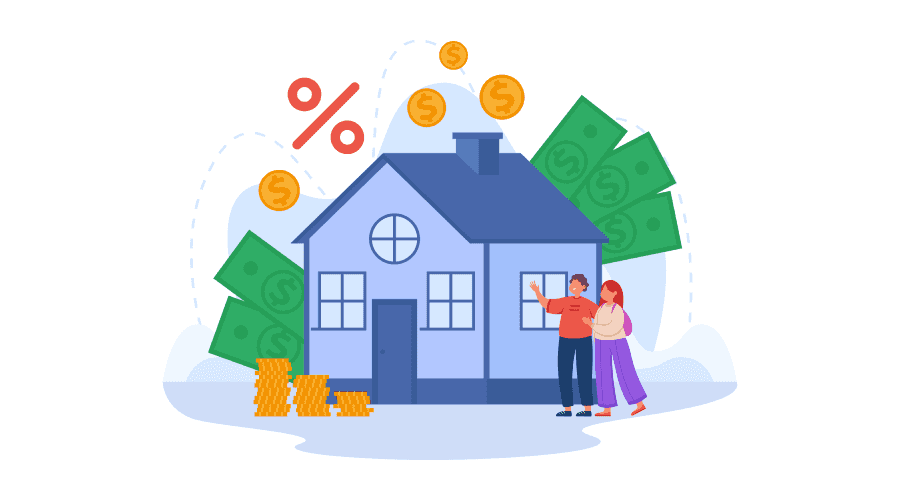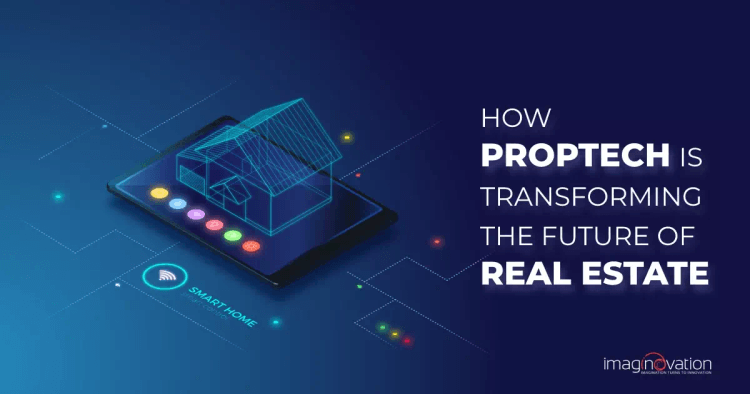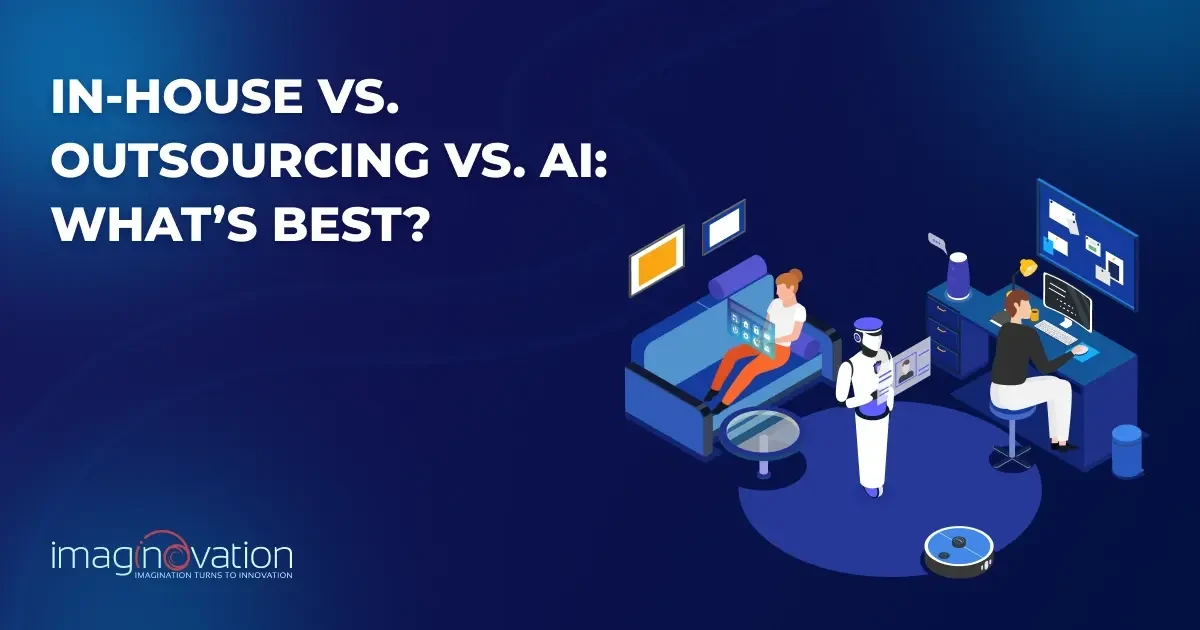The real estate industry is one of the most lucrative industries in the world.
According to Grand View Research, the global real estate market size was valued at USD 3.69 trillion in 2021 and is expected to expand at a compound annual growth rate (CAGR) of 5.2% from 2022 to 2030.
There are several reasons why using new technologies such as PropTech is beneficial for real estate. Perhaps the most obvious benefit is that it can help agents and brokers connect with more potential buyers and sellers.
In a world where technology is constantly changing and evolving, it's essential to use tools that allow you to stay ahead of the curve.
That's why, in this blog post, we will explore what PropTech is and how it is shaping the future of the real estate industry.
What is PropTech?
PropTech, or property technology, is a term used to describe the application of technology within the property industry. This can include everything from online real estate portals and apps to drones and 3D printing.
There are two main types of PropTech: front-end and back-end. Front-end property technology refers to the technologies that consumers interact with directly, such as real estate apps and portals. Back-end PropTech encompasses the technologies that power these front-end platforms, such as data analytics and cloud-based software.
Investment in property technology startups has been on the rise in recent years, as traditional players in the property industry recognize the potential of technology to disrupt the status quo. In fact, it's expected that the PropTech industry will grow from its current US$ 18.2 billion to a value of US$ 86.5 billion over the next ten years.
PropTech has the potential to make the processes of buying, selling, and renting property more efficient and transparent, while also opening up new possibilities for how we use and occupy space.
At its core, PropTech is about using technology to solve problems within the property industry. Whether it’s making it easier to find your dream home or making the construction process more efficient, property technology is changing the way we think about and use property.
Key Benefits of PropTech in Real Estate
Now, that's all well and good, but why go through all the trouble of setting everything up? What are the key benefits of PropTech? Let's dive in.
1. Transparency

One of the main benefits of PropTech is that it improves transparency and collaboration within the industry.
In the past, many real estate transactions were conducted offline, making it difficult for buyers and sellers to get accurate information about properties.
PropTech can improve transparency in many ways. For example, it can provide data that helps individuals and businesses make informed decisions about properties.
Additionally, PropTech can help streamline communication between buyers and sellers, making the process more efficient and transparent.
Ultimately, PropTech has the potential to create a more open and transparent real estate market, benefiting everyone involved.
2. Improved Collaboration and Communication
Another benefit of PropTech is that it helps facilitate better communication between landlords and tenants. In the past, it was often difficult for tenants to get in touch with their landlords, and vice versa.
With PropTech tools like mobile apps, however, it’s now easier than ever for tenants and landlords to stay in touch, exchange information, and resolve any issues that may arise.
PropTech can also help improve communication directly in the real estate industry, particularly on the buying front. Before, many real estate transactions were conducted offline, making it difficult for buyers and sellers to communicate. With PropTech, all of this information is now available online, making it easier for everyone involved in a transaction to stay in touch.
Additionally, PropTech tools like chatbots can help real estate professionals communicate more effectively with their clients and provide them with the information they need promptly.
3. Better Marketing
PropTech can also help improve promotion and marketing. The standard practice in the industry before this technology was more chaotic.
Many property listings were only accessible through print media or word-of-mouth. With PropTech, however, property listings are now available online, making them more accessible to a broader audience.
Additionally, PropTech tools like virtual reality can give potential buyers a more immersive experience of a property without having to visit the site physically.
4. Increased ROI
PropTech can also help improve value and ROI in real estate. Before the advent of this technology, many real estate investors only had access to a limited pool of properties. PropTech allows them to search for and invest in properties worldwide.
Additionally, tools like data analytics can help investors make more informed decisions about which properties to invest in and how to manage their portfolios best.
5. Better Turnover and Occupancy Rates

PropTech can also help improve occupancy rates and turnover in the real estate industry. In the past, many landlords had difficulty filling vacant units in their buildings. With PropTech, however, they can now use tools like online listings and virtual tours to attract potential tenants.
Additionally, PropTech tools like mobile apps can help landlords manage their properties more efficiently and keep track of renters’ payments and lease terms.
PropTech is also making it easier for people to find and rent apartments. In the past, finding an apartment could be a time-consuming and frustrating process, but PropTech companies are developing new ways to make it easier.
For example, one company has developed a platform that allows people to search for apartments by location, price, and amenities, while another is working on a way to help people find apartments available for rent in their area.
In addition to making the rental process more efficient, PropTech is also helping to improve the way buildings are managed.
For example, one company has developed a platform that helps building managers keep track of maintenance and repair requests, while another is working to help managers identify potential building problems before they become serious. This, of course, encourages occupants to stay with a particular landlord instead of moving out.
6. Productivity
In the past, many real estate transactions were conducted offline, which was time-consuming and often resulted in errors. With PropTech, however, all of this information is now available online, making it easier for everyone involved in a transaction to stay informed.
PropTech data analytics tools can also help real estate professionals make more informed decisions about properties and manage their portfolios more effectively.
How PropTech is Shaping The Future of Real-Estate
As we've already mentioned, PropTech is a broad term used to describe the use of technology in the real estate industry.
PropTech can encompass anything from online portals and apps that make it easier to find and buy property to innovative construction methods and materials that are being used to build more sustainable and efficient buildings.
1. Blockchain

Blockchain technology is also starting to make its way into the world of real estate. This distributed ledger technology is most commonly associated with cryptocurrencies like Bitcoin. But it also has the potential to revolutionize the way we buy, sell, and rent a property.
For example, blockchain could be used to create a decentralized database of all property transactions. This would make it much easier to track ownership and transfer of properties. It would also make it more difficult for fraudsters to sell properties that they don’t own.
Another way that blockchain could change real estate is through the use of smart contracts. These are contracts that are stored on the blockchain and can be automatically executed when certain conditions are met. This could streamline the process of buying and selling property, as well as renting property.
2. Internet of Things
The Internet of Things (IoT) is another cutting-edge technology that is starting to impact the real estate world. The IoT refers to the network of physical objects that are connected to the internet. This includes everything from fridges and TVs to thermostats and light bulbs.
For real estate, the IoT can be used to create so-called “smart homes”. These are homes that are fitted with a range of connected devices that can be controlled remotely. For example, you might be able to adjust the heating from your smartphone or turn on the lights before you even get home.
The IoT can also be used to collect data about a property. This data can be used to improve a property's energy efficiency or monitor maintenance issues.
3. Augmented and Virtual Reality

We all know how important it is to be able to see a property before you buy or rent it. In the past, this would involve going to an open house or scheduling a viewing. But what if you could do this from the comfort of your own home?
This is where augmented and virtual reality comes in. These cutting-edge technologies are changing the way we view properties.
With augmented reality, you can see property as it would look in real life, with all the furniture and fittings in place. And with virtual reality, you can actually walk through a property and get a feel for the space before you make any decisions.
This is particularly useful for those who are buying or renting a property sight unseen, such as overseas buyers or tenants. It also means that you can view a property at any time of day or night without having to work around someone else’s schedule.
4. Drones
Another tech trend that is changing the real estate game is the use of drones. Drones are becoming increasingly popular for taking aerial photos and videos of properties.
This gives potential buyers or renters a much better idea of the layout of the land, as well as any surrounding features such as parks, schools, and transport links.
It also means that agents can show off a property in its best light without having to rely on ground-level photos that might not do it justice. And if you’re selling a property, using drone footage is a great way to make your listing stand out from the crowd.
5. 3D Printing
3D printing is another technology that is starting to have an impact on the world of real estate. This additive manufacturing technology can be used to create three-dimensional objects from a digital file. And it’s not just for small objects – there are now 3D printers that can print houses.
This technology could be used to create homes quickly and cheaply. It could also be used to create custom homes that are designed specifically for the needs of the occupants. For example, a 3D-printed home could be designed to be more energy-efficient or accessible for those with disabilities.
Implement PropTech Solutions with Imaginovation
PropTech holds a promising future and is already shaping the real estate industry of tomorrow.
If you’re considering building powerful PropTech solutions for your business, talk to us. At Imaginovation, we specialize in developing property technology solutions tailored to your needs.
We are an award-winning web and mobile app development company with extensive experience in creating innovative applications for real estate businesses.
Let's Talk.
Ready to build an app, but not sure where to start?
We've got you covered. Click the button below to get started.





